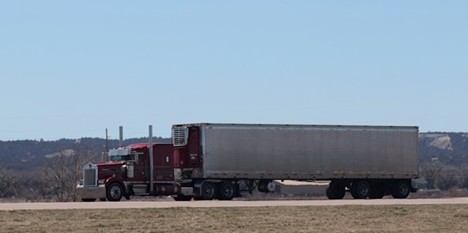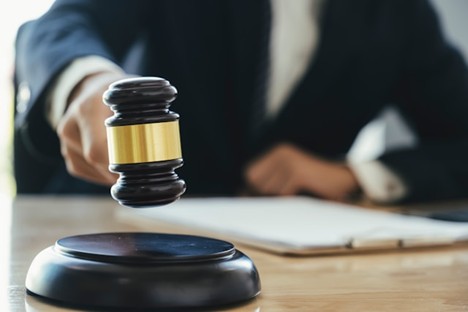When a commercial vehicle is involved in a serious accident, the legal aftermath is rarely straightforward. Between the layers of federal regulations, company policies, driver records, and accident reconstruction, the details often require specialized knowledge to interpret. This is where expert testimony becomes indispensable. In fact, in many cases, the credibility and clarity of an expert can shape the entire trajectory of litigation. The field has even given rise to specialties such as expert trucking testimony, which provides courts with insights that go far beyond what a layperson or even a seasoned attorney can offer. Understanding how these professionals influence the courtroom can help reveal why their role is one of the most decisive factors in commercial vehicle cases.
The Complexity of Commercial Vehicle Cases
Litigation involving commercial vehicles is inherently more complicated than typical car accident cases. Trucks and buses are governed not only by state laws but also by federal safety regulations. These vehicles often carry higher insurance coverage limits, making the stakes greater and the legal arguments more aggressive. Companies may employ sophisticated legal teams to protect their interests, while plaintiffs must establish not only liability but also the extent of damages with a level of detail that meets the court’s exacting standards.
Because of these added layers, factual clarity becomes paramount.
Who was responsible for maintaining the vehicle?
Did the driver adhere to hours-of-service rules?
Was the accident caused by a road hazard, mechanical failure, or human error?
Each of these questions demands precise answers, and expert testimony often provides the framework for resolving them.
Clarifying Technical Issues
One of the key contributions of expert testimony is its ability to make complex technical issues understandable. A jury made up of everyday citizens is unlikely to have knowledge of air brake systems, load distribution, or federal motor carrier safety regulations. Without proper explanation, the technical dimensions of a case may be lost, leaving jurors to make decisions based on incomplete or confusing information.
Experts bridge this gap by breaking down technical language into plain terms. For example, an expert might explain how improper tire inflation could lead to a catastrophic blowout or how data retrieved from an electronic logging device provides a timeline of a driver’s actions. These explanations allow jurors to fully grasp the mechanics of the accident and make more informed decisions.
Establishing Liability
Most commercial vehicle litigation is the question of liability. Was the driver negligent, or did the fault lie with the trucking company for inadequate training, poor vehicle maintenance, or unrealistic delivery schedules? Determining liability requires more than speculation; it requires evidence that is presented in a coherent and persuasive manner.
Expert testimony plays a central role here by connecting the dots between facts. An accident reconstruction specialist may use physics and engineering principles to show how the collision unfolded, while a medical expert may link injuries directly to the impact sustained. This level of analysis helps ensure that liability is not only asserted but also substantiated with credible, fact-based reasoning.
Countering Defense Strategies
In commercial vehicle cases, defendants often employ aggressive strategies to deflect blame. They may argue that the plaintiff’s injuries predated the accident, that the driver acted reasonably under the circumstances, or that an unavoidable external factor caused the crash. Without expert testimony, these claims can create enough doubt to sway a jury.
Experts provide a counterbalance to these strategies by offering authoritative interpretations of evidence. For instance, a biomechanical expert might demonstrate that the plaintiff’s injuries are consistent with forces generated in the collision, discrediting arguments that the injuries were pre-existing. Similarly, a human factors expert might evaluate whether the driver’s behavior was reasonable given the conditions. In this way, experts equip the plaintiff’s legal team with powerful rebuttals that strengthen their case.
Quantifying Damages
Beyond proving liability, expert testimony is often vital in establishing the scope of damages. Injuries sustained in commercial vehicle accidents are frequently severe, involving long-term or permanent consequences. Plaintiffs may face significant medical expenses, lost income, reduced earning capacity, and diminished quality of life.
Medical experts, vocational specialists, and economists often testify to give the jury a clear understanding of these damages. A medical expert can outline the course of treatment and long-term prognosis. A vocational expert may explain how the injuries prevent the plaintiff from returning to their previous line of work. An economist can then quantify the financial impact of these limitations over the plaintiff’s lifetime. Together, these perspectives provide the jury with a comprehensive view of how the accident has reshaped the plaintiff’s life, supporting an award that reflects the true extent of the harm done.
Persuading the Jury
At its core, expert testimony is about persuasion. Judges and juries must make decisions based not only on the evidence but also on how convincingly that evidence is presented. A well-prepared expert who explains their findings with clarity, authority, and confidence can have a profound impact on how a case is perceived.
The demeanor of the expert also matters. Jurors tend to respond favorably to experts who are impartial, transparent about the limits of their findings, and willing to explain concepts patiently. When an expert appears biased or overly technical, it can undermine their credibility. Thus, the effectiveness of expert testimony depends not only on expertise but also on communication skills and presentation.
Shaping Settlements
While many commercial vehicle cases go to trial, a significant number are resolved through settlements. Here too, expert testimony plays an influential role. Strong expert reports can persuade defendants that the plaintiff’s case is solid, encouraging them to settle rather than risk a larger payout at trial. Conversely, weak or ambiguous expert findings may embolden defendants to prolong litigation.
In many instances, the mere presence of credible expert testimony shapes negotiations behind the scenes. Attorneys often use expert analyses as leverage, presenting them during mediation or settlement talks to demonstrate the strength of their client’s position.
The Evolving Role of Experts
The role of experts in commercial vehicle litigation continues to evolve as technology advances. Data from electronic logging devices, onboard cameras, and vehicle telematics now provide an unprecedented level of detail about driver behavior and vehicle performance. Experts trained to interpret this data are increasingly essential, as they can uncover critical insights that were once unavailable.
Similarly, advances in accident reconstruction software allow experts to create 3D visualizations of collisions, making their explanations even more persuasive in the courtroom. As litigation grows more technologically sophisticated, the demand for experts who can analyze and present these complex data sources will only increase.
The Knowledge and Credibility Needed
In commercial vehicle litigation, where the stakes are high and the details are complex, expert testimony is often the linchpin that determines outcomes. From clarifying technical issues and establishing liability to quantifying damages and shaping settlement negotiations, experts provide the knowledge and credibility that courts rely on to render fair judgments.
While attorneys craft legal arguments and plaintiffs share their lived experiences, experts supply the specialized insights that tie the case together. Their role is not simply to inform but to persuade, bridging the gap between technical complexity and everyday understanding. In doing so, they help ensure that justice in commercial vehicle cases is not left to chance but is instead grounded in evidence, expertise, and clear communication.









